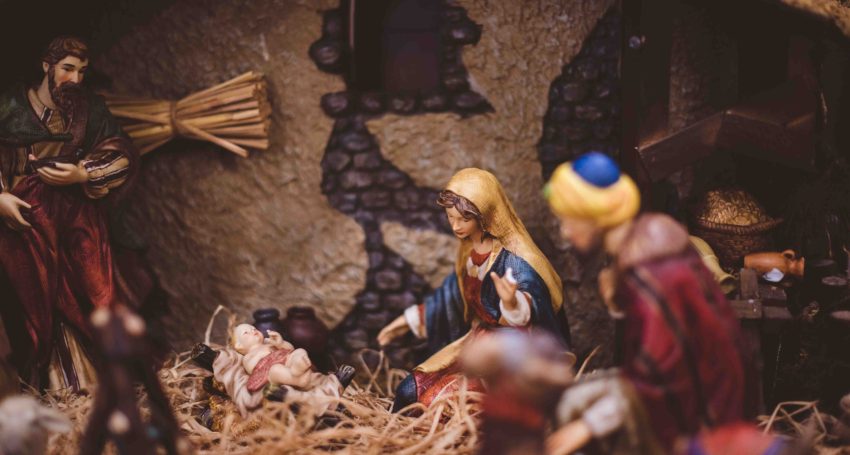Advice to clerics: pace your workload for Christmas
Features
As the Christmas season approaches, clergy need to be more mindful of their health and wellbeing with the busyness of Advent preparations, Christmas services and events, increased community engagement and media opportunities, and the ordination weekend, as well as the hectic, but fun, end-of-year family activities

With the Christmas season approaching, clergy will be even busier than usual with Advent preparations, Christmas services and events, increased community engagement and media opportunities, and the ordination weekend, as well as the hectic, but fun, end-of-year family activities. Finding balance during this period can be challenging and it is important to make time for exercise and relaxation, to eat healthily and be as organised as possible, as well as to set realistic expectations and delegate tasks. This Church Times article, by Pat Ashworth, is a good place to start to get clergy thinking about their wellbeing over the Christmas season.
Parish Clergy have a great deal of fun at Christmas, and look on the services and associated activities as a great opportunity for the Church. But their supporters warn that, for their own and their families’ sake, they must take time off afterwards and recharge their batteries.
The Archdeacon of Newark, the Ven. Nigel Peyton, recalled a St Gargoyle’s cartoon featuring a cleric slumped asleep at his desk and captioned: “On Boxing Day, George sat down to write his Lent course.” “I found that very poignant,” he said. “Clergy morale is good about the season. They are quite heroic in what they take on, but then they are highly committed, and always want to give of their best.”
In the diocese of Southwell & Nottingham, and especially in its former coalfield communities, Christmas still has such a high value that the opportunity has been has dubbed “Christendom Extra”. “People come to us – we don’t have to go out looking for them. If we don’t respond, we really shoot ourselves in the foot,” said Mr Peyton.
“Clergy really do love the affirmation of large numbers of people – it’s a good time for them. They need and want to say something meaningful to those who come. But there’s a danger they may do too much. They need to pace themselves and plan very carefully what they can genuinely manage to do.”
Advertisement
Clerics with multiple parishes were recommended to have “one really good-quality Christmas event in each”, whether it was a midnight mass or a midweek carol service, and to share the load with colleagues and lay people.
The Revd David Baldwin, Vicar of five rural parishes in Lichfield diocese, agreed. A former psychiatric nurse and trade-union adviser for the Royal College of Nursing, he reiterated the need for clergy not only to be focused on God at Christmas, but to develop coping mechanisms. “Prioritise. This is the time for lists,” he said, emphasising the value of a protective spouse. “Be realistic; admit weaknesses. We’re not called to be Superman or Superwoman.”
His Bishop, the Rt Revd Jonathan Gledhill, has taken steps to ensure the well-being of his clergy, including giving them regular health checks. “We all of us live in a stressful world, and our profession is no different from others, in that we have been asked to take on more responsibility,” he said.
“We [clerics] are entirely responsible for how we choose to work, and what we spend most time on. That means we sometimes neglect ourselves and neglect the kind of provision that is there. What all clergy are urged to do is to have safeguards, principally to make the deanery chapter a place of mutual support for prayer and Bible-study, and for us to have a spiritual director or guide, and possibly a work consultant to give us an eye on how we do or don’t organise ourselves.”
Advertisement
Bishop Gledhill emphasised planning ahead at Christmas, and having “a good holiday afterwards to look forward to”. He acknowledged, however, that it was difficult to persuade clergy to do these things. “Lazy clergy are a rarity. They are conscientious.”
Clergy could be their own worst enemies, he suggested. “We tend to feel responsible, when, in the end, we perhaps have to share the responsibility with God.” He recommended: “Plan in a bit of domestic help from relatives coming to stay: ask them to bring contributions to a meal.”
Christmas can be one of the hardest times for those of the clergy who are suffering from any kind of depression, said the Revd Philip Clements, a retired priest who is now Chaplain of St Bartholomew’s Hospital in Sandwich. As one who has overcome bipolar disorder, his case is extreme, but in his book, Sweet and Bitter Fool (Chipmunka Publishing, 2007), he recalls the worst Christmas of his life, in 1990.
“For those with depression, it can be cheerless. Surrounded by Christmas joy and bonhomie, the depressive can feel isolated. For a priest like myself, leading festive services when suffering from depression, the strain can increase,” he writes.
“One bipolar episode coincided with the festive season, and the illness made it impossible to take the Christmas services . . . A kind priest from a neighbouring parish invited me to assist him on Christmas Day. I think this was a turning point, reinforced when my GP diagnosed my condition and put me on lithium. I felt so much better, and the magic of Christmas began to work.
“I resumed my parish duties on New Year’s Eve by initiating and conducting a Watch Night service, which included the bells ringing in the New Year. Mince pies and punch were provided. My Christmas joy at last began to flood into me as the strains of my illness lifted.
“The New Year was the start of the rest of my ministry, in which I would learn to rely less on myself and more on the newborn Saviour. I was renewed at that time, and, though a manic depressive still, I have been able to continue my ministry uninterrupted, with my illness controlled and strength supplied. Christmas – a new birth! I, too, was finding new life. My restored health was the best of Christmas gifts.”
First published in Church Times on 19 December 2007. To subscribe to Church Times, please visit the Church Times website.
For more on clergy wellbeing, please visit PMC’s faithful + effective website.





